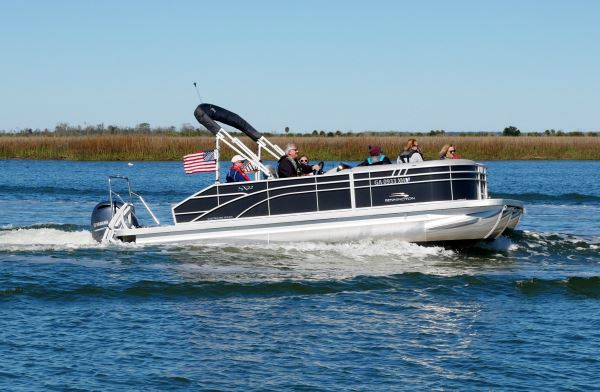 Years of sailing in my childhood with my dad gave me a cursory knowledge of boating, though I paid little attention to details such as how to tie knots or which boat has the right of way. All I know is I loved to feel the sailboat skip over the waves, running with the wind, and when it was time to turn the boat, I always waited for my dad’s shout of, “Ready, About, Hard Alee!” which meant the boom would swing across the boat and it was time to duck.
Years of sailing in my childhood with my dad gave me a cursory knowledge of boating, though I paid little attention to details such as how to tie knots or which boat has the right of way. All I know is I loved to feel the sailboat skip over the waves, running with the wind, and when it was time to turn the boat, I always waited for my dad’s shout of, “Ready, About, Hard Alee!” which meant the boom would swing across the boat and it was time to duck.
I think it’s time I learned a few more things.
Writing for Pontoon and Deck Boat magazine has me re-immersed in the boating world, and I feel awash with new and unfamiliar terms such as transom, seawall, bulkhead, and Bimini.
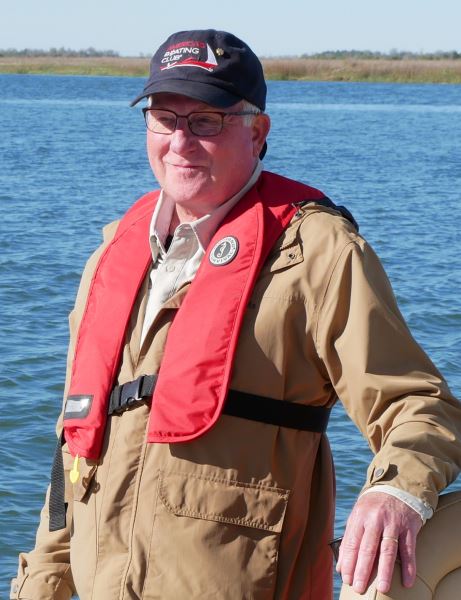 Though I can Google terms here and there, I don’t want to aimlessly trawl YouTube for a credible boating education. However, America's Boating Club just might have a beautiful solution.
Though I can Google terms here and there, I don’t want to aimlessly trawl YouTube for a credible boating education. However, America's Boating Club just might have a beautiful solution.
As a nationwide boating club with more than 300 chapters run by volunteer boat lovers, America's Boating Club offers a diverse array of boating classes—suitable for the beginning boater like me and the advanced skipper ready to circumnavigate the globe. And of course, everyone in between.
What I love is that I can not only take online classes, but I can also tap into a local chapter and have boating lessons right on the water, because little beats hands-on learning or getting to ask my questions in real time. (“Which knot is best for towing? Why is the outboard motor making that funny noise?”) And joining a boating club is what the group is all about—adding to the community and camaraderie of boaters.
On a mission to improve boating education and safety since its founding in 1914, the group is run for boaters, by boaters, and knows that education makes everyone safer. With partnership and grants from the United States Coast Guard, the club works hard to further the goals of safer waterways with a wide range of boating courses and seminars, including boat handling, navigation, boating regulations, and marine electronics.
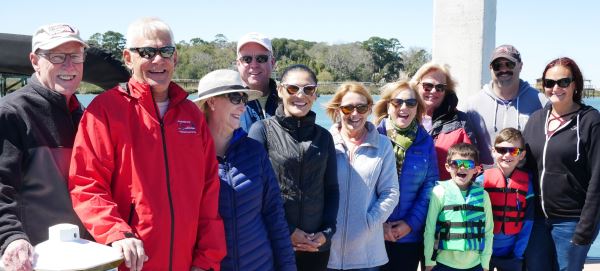 And as more women like me captain their own vessels, many club classes are offered for women at the helm. New programs exist for children as well, because it’s vital that they know basic safety rules (always wear a life jacket!) and how to call for help in an emergency.
And as more women like me captain their own vessels, many club classes are offered for women at the helm. New programs exist for children as well, because it’s vital that they know basic safety rules (always wear a life jacket!) and how to call for help in an emergency.
And the classes are only the beginning. Through the club you can also share boating skills and navigation updates, engage in fun boating activities, and connect with the boating community for free vessel safety checks and port information.
Each local chapter sets the price of annual dues, but the average is about $100/year. And membership in America's Boating Club gives such a deep discount on boater’s insurance that it often balances out the cost entirely. Members also get discounts on boater education classes, travel insurance, hotels, and even cruises. Most of the revenue stays in the local chapter to fund classes and advertising, but part of the revenue is shared to the district and national level, which helps further the mission of making the water safer for everyone.
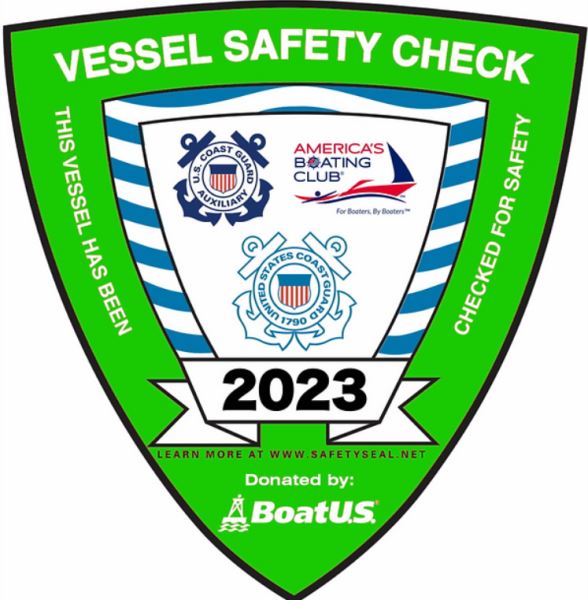 One of the greatest benefits of membership in America's Boating Club is the free vessel safety check; a local expert can give an on board safety review of my boat and make sure I have all the necessary supplies for my day on the water. Then I’ll receive the coveted vessel safety sticker that I can proudly display on my watercraft, letting the Coast Guard know my life jackets are accessible, and my pontoon is ready to go.
One of the greatest benefits of membership in America's Boating Club is the free vessel safety check; a local expert can give an on board safety review of my boat and make sure I have all the necessary supplies for my day on the water. Then I’ll receive the coveted vessel safety sticker that I can proudly display on my watercraft, letting the Coast Guard know my life jackets are accessible, and my pontoon is ready to go.
America's Boating Club also runs the website www.boatlive365.org, which offers a host of free engagement opportunities and education. Be sure to check out how to stay warm if you fall into cold water.
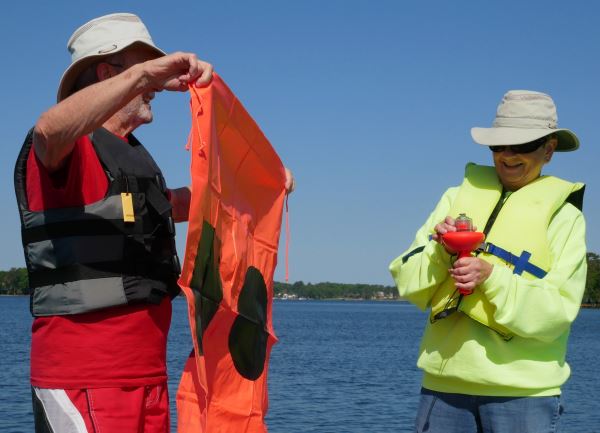 Obviously, water can be dangerous and sometimes even I forget just how much. But the better we’re prepared to face those risks, the more likely it is we can arrive home safely.
Obviously, water can be dangerous and sometimes even I forget just how much. But the better we’re prepared to face those risks, the more likely it is we can arrive home safely.
Thankfully my dad had learned ahead of time what to do if our sailboat capsized—imagine if he’d panicked when we were tossed in the water and the 30-foot mast and sail lay waterlogged on its side. Even he was surprised at the simple solution—stand on the centerboard, of all things—and our boat quickly righted itself and we climbed back in. My dad’s preparation paid off, and it makes me realize I have much more to learn about navigating the water before the next time I cast off.

